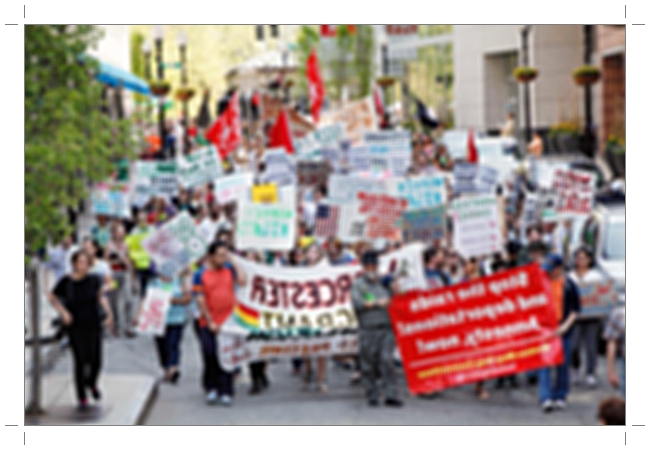How to Legally Protest in London

When we hear the word, ‘protest,’ – for some reason, the image of an intimidating large crowd rioting and screaming blurs our vision. However, that is not always the case, and now fortunately due to the Human Rights Act 1998 implemented by UK, the right to assemble and express is included as one of the basic human rights. This has allowed people to freely protest over an issue they feel strongly about. This includes issues related to child labour, women rights, minority rights and racial discrimination. Many of the freedoms we now enjoy come through a process of struggle by older generations, where they protested and raised their voices. Protests are allowed as long as they remain on the right side of law and do not become unlawful in any way whatsoever. This article will step by step explain how to legally protest in London to make your opinion heard!
Instructions
-
1
It is advised to “inform” the concerned authorities prior to protesting. This should be done as soon as possible so they can give you guidelines and brief you on unlawful acts. Remember, there is a difference between the need to ‘inform’ and the want to ‘seek permission,’ - and you will merely inform!
-
2
There may be some conditions set by them on the number of people to attend the protest, the venue and maximum duration. If they put restrictions that are suffocating your right to protest, try to negotiate less strict terms, but if you still feel they are hindering your right to protest, then the protesting party can always sue the police.
-
3
There are times in the process of protesting when private property is damaged or trespassed. Avoid doing that. If you trespass, a request to leave the area will be made, which you should oblige. Failure to do so may result in forceful eviction, and you will be committing a crime.
-
4
The protest may be considered illegal if it is done to serve the purpose of harassing an individual or a group of people. This can be with the intention to coerce them to practice something that they are not permitted to do, and vice versa. This type of ‘protest’ will be considered an act of harassment.
-
5
There are times when the issue that the protest is about comes under national security or when companies that the protest is against, seek an injunction from the court. This is to stop the protest. It is, then, against the law to proceed with the act, rather, an application should be filed in court against the injunction and once the court has decided in favor, should the protest be held.
-
6
In a crux, any act that is violent or bordering on violence, should be avoided at all costs because it will be considered unlawful and against the right to peacefully protest.







